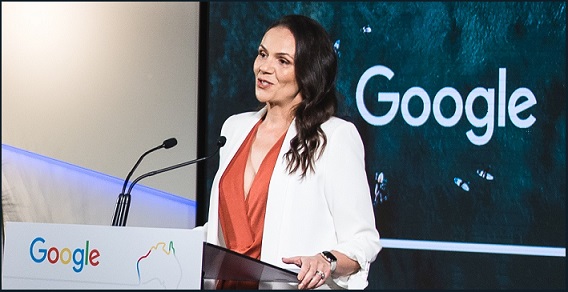Google has launched a range of online training courses aiming to upskill Australians in tech-related fields, with a number of the country’s largest companies already agreeing to recognise the microcredentials.
The Google Career Certificates have been created by Google experts in a range of tech fields, including IT support, data analytics, project management, digital marketing and UX design.
They will consist of flexible online courses which will take about six months to complete with 10 hours of study each week.
The courses will cost $56 per month through a Coursera subscription, equating to $336 in total if it’s completed in six months.
Google will also be providing 10,000 scholarships for these online courses for women and First Nations Australians.
The courses will be flexible and will take between three and six months to complete, depending on how much time is dedicated to them.
With 10 hours completed per week, one course will take six months.
Google has also gathered a consortium of some of Australia’s largest companies which have agreed to recognise the qualifications and signalled interest in considering graduates in open roles.
These companies include Australia Post, Woolworths Group, Canva, Optus and IAG.over across five years, through thousands of new jobs and digital infrastructure.
Google Australia managing director Mel Silva said the new training offerings will help drive Australia’s goal of being a leading digital nation.

Google Australia managing director Mel Silva announced the certificates. Photo: Supplied
“Technology-related roles are in demand across all industries in Australia and employers place a premium on these skills,” Silva said.
“But for many people, it’s hard to find the time for long-term formal training, especially mid-career or with other responsibilities.
“The great thing about Google Career Certificates is that they provide practical, hands-on experience and flexibility along with the skills Australians are looking for.
“And we are excited to work with leading organisations and partners to help connect people with these new qualifications directly to job opportunities.”
Federal Minister for Industry Ed Husic spoke at the launch of the new microcredentials.
“Too long as a country we’ve not recognised that the pathway on skill development. That is altering.
“Because there are a lot of us here that went through primary school, high school and then we go through TAFE or university, that was it, your learning finished at around 25 and then you were out in the workforce,” Husic said.
He added the government wants to work with companies like Google in fundamentally changing the way education is delivered in Australia.
“You’re being agile in the development of skills,” Husic said.
“The other thing that I love is the fact that Google is also targeting underrepresented people in the community to train them up. We commend businesses like Google and others that want to step up and invest in skills and opportunity,” he said.
“We want to work with you. We want to make sure that we’ve got the settings right as a government when it comes to education and training.”
Google has partnered with Indigitek, Project F, Generation Australia and Code Like a Girl to distribute the 10,000 scholarships for the online courses.
“Technology and digital skills have potential to create immense opportunities – but we will only realise the potential if all Australians can participate,” Silva said.
The Business Council of Australia has thrown its support behind the project.
“Micro-credentials mean people can get the skills they need - when they need them,” Business Council of Australia CEO Jennifer Westacott said.
“Google’s leadership is critical to building the digital skills workers and businesses need, especially for those who are underrepresented in digital roles.”
Australia is facing a growing skills gap. According to a recent report from the Australian Computer Society (ACS), there is an ICT jobs gap of 60,000 extra workers per annum over the next five years, yet only 7,000 students are studying IT degrees.
IT employers in Australia have been urged to relax their requirements for a degree for some tech roles, in a bid to aid the shortage of staff.










